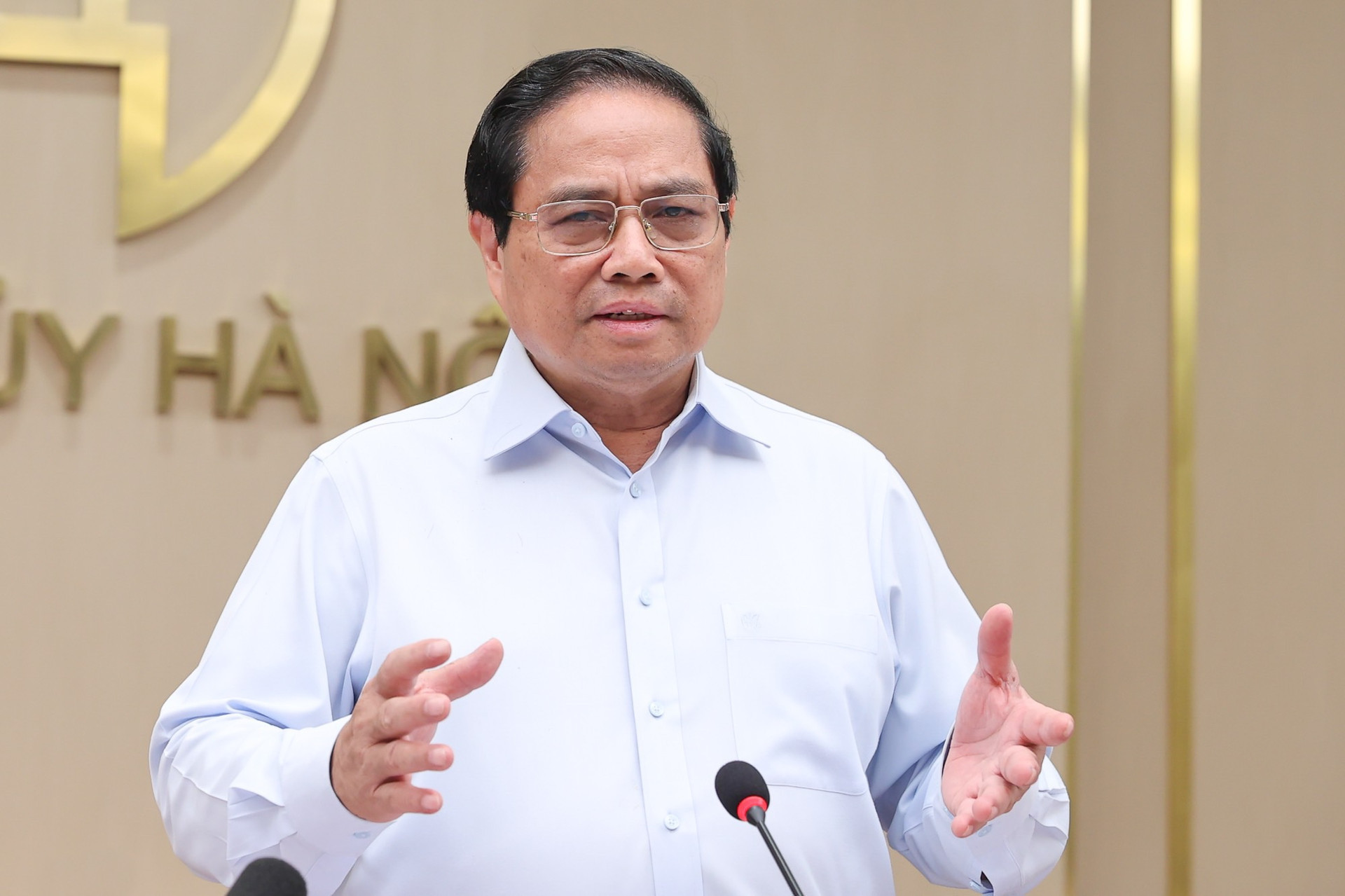On August 17th, Prime Minister Pham Minh Chinh met with the Standing Committee of the Hanoi Party Committee to discuss the city's socio-economic development and the implementation of national target programs.

In his report, Chairman Tran Sy Thanh highlighted that Hanoi's economy has continued to grow since the beginning of the year, with major economic balances maintained and most socio-economic development indicators showing growth compared to the same period in 2023.
Hanoi's Gross Regional Domestic Product (GRDP) increased by 6% in the first half of this year, with an average growth rate of 6.04% from 2021 to 2023. The city’s total budget revenue for the first seven months of 2024 reached nearly VND 324 trillion, equivalent to 79.2% of the annual estimate.
Chairman Tran Sy Thanh requested that the Government and the Prime Minister consider implementing "special, breakthrough" mechanisms and policies to complete the metro lines. He also proposed decentralizing and delegating authority to allow the city to manage resources more autonomously and streamline procedures to meet the progress directed by the Politburo.
Regarding specific projects, the Hanoi Chairman urged the Prime Minister to approve the investment policy for Metro Line No. 2 (Nam Thang Long - Tran Hung Dao section) so that construction can begin in 2025. He also requested approval this month to use ODA (Official Development Assistance) funds for Metro Line No. 3 (Hanoi Station - Hoang Mai section) to proceed with subsequent steps.
According to Hanoi's Vice Chairman Duong Duc Tuan, the city aims to complete the construction and operation of 10 metro lines, spanning a total of about 400 kilometers, by 2035.
From 2024 to 2030, the city plans to construct 96.8 kilometers of metro lines, requiring an estimated capital of USD 14.6 billion. From 2031 to 2035, an additional 301 kilometers will be constructed, requiring approximately USD 22.5 billion.
"Based on the review of public investment sources and the potential to mobilize other funding sources, the city expects to have about USD 28.56 billion by 2035. Therefore, the city will need approximately USD 8.5 billion in support from the central government," said Vice Chairman Tuan.
Significant effort needed to complete 400km of metro in 11 years

During the meeting, Minister of Transport Nguyen Van Thang emphasized that completing the 400-kilometer metro network will require significant effort from Hanoi. "Particularly, the mobilization of USD 15 billion before 2030 and USD 23 billion before 2035 is a considerable budget," said Minister Thang.
Minister Thang also affirmed the Ministry of Transport's agreement with Hanoi on the early approval of the investment policy for Metro Line No. 2 (Nam Thang Long - Tran Hung Dao section) and the proposal to approve the use of ODA funds for Metro Line No. 3 (Hanoi Station - Hoang Mai section).
In conclusion, Prime Minister Pham Minh Chinh broadly agreed with Hanoi's proposals. The Prime Minister tasked Hanoi with concretizing the amended Capital Law, which was passed by the National Assembly during its seventh session.
Regarding specific tasks, the Prime Minister urged Hanoi to accelerate the disbursement of public investment funds, particularly focusing on the completion of Ring Road No. 4 and other key projects.
The Prime Minister acknowledged the progress made by Hanoi and other related agencies in completing the Nhon - Hanoi Station and Cat Linh - Ha Dong metro lines.
"These two metro lines have proven effective, and the public is very enthusiastic. This demonstrates that we have gained experience in constructing urban railways," the Prime Minister said, instructing Hanoi to concentrate on public investment disbursement to drive growth.
Quang Phong